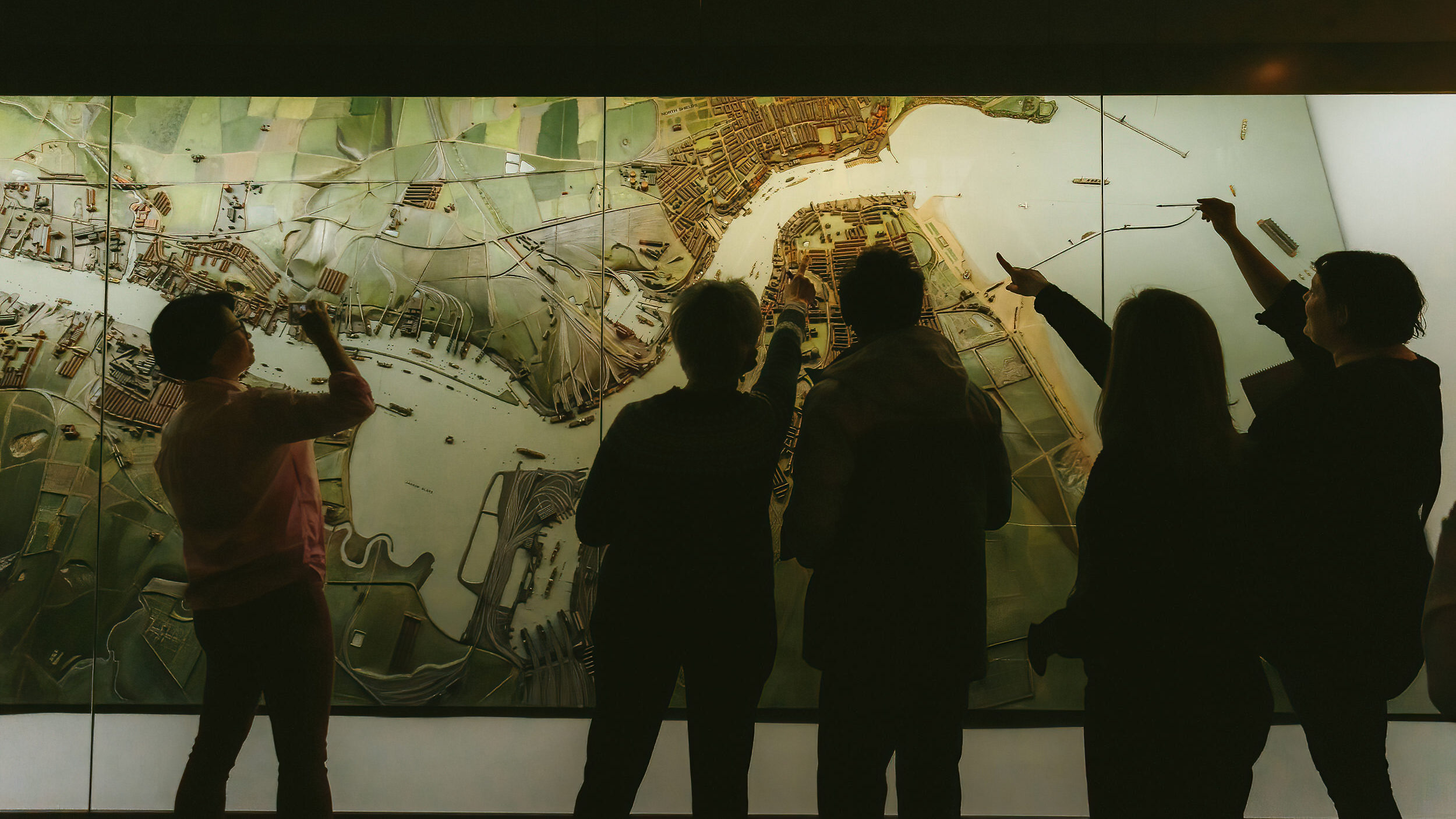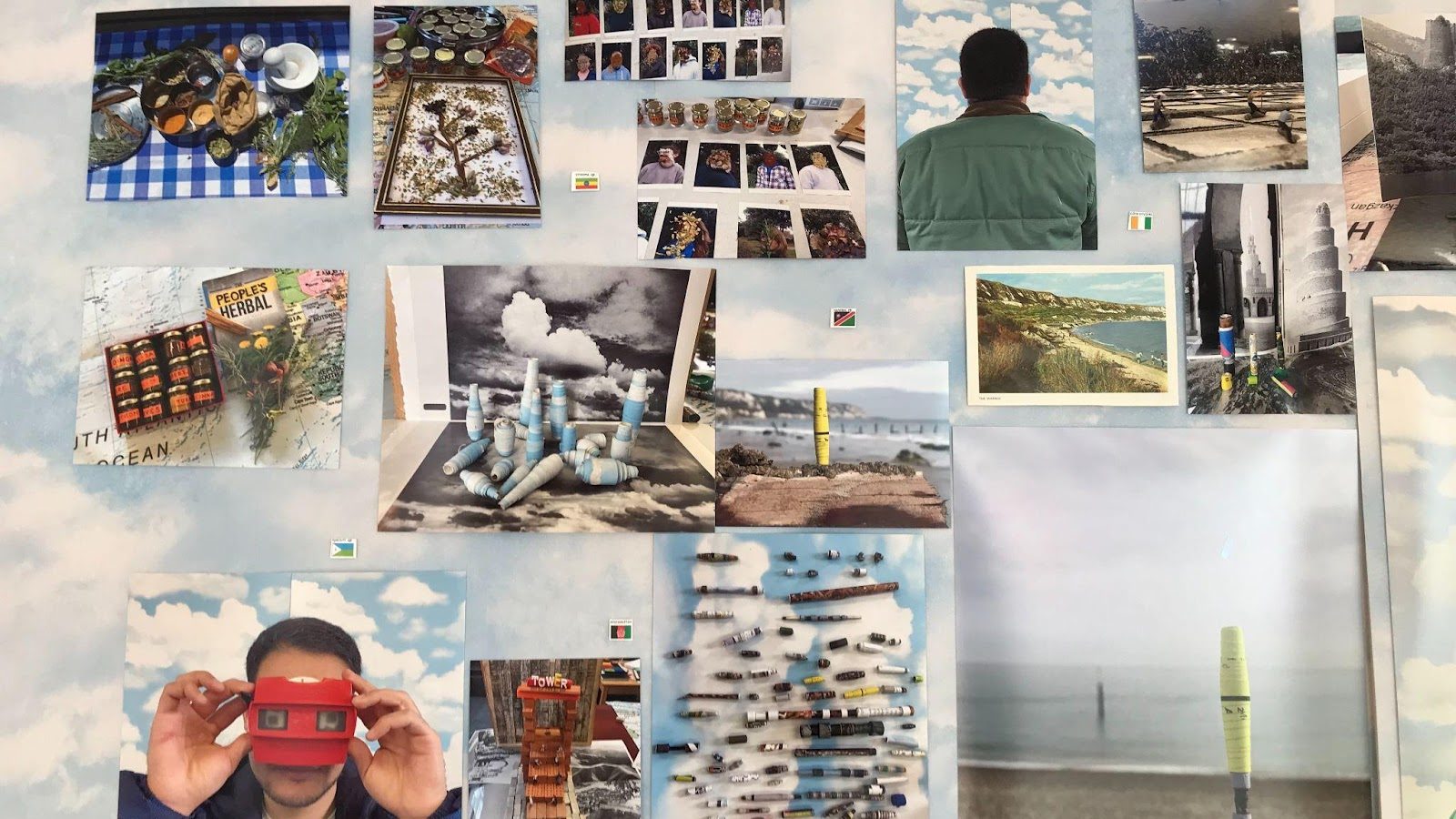Codifying Refugee Participation: Participatory approaches to forced displacement in UK Galleries, Museums, Academia and Activism

As of June 2024, according to the UNHCR, there are some 122.6 million people globally who have been forced to flee their homes. Yet the voices of thousands of refugees in the UK are frequently marginalised or silent.
The following pages contain best practice guidelines, case-studies, resources, and a call to action for museums and galleries in the UK undertaking participatory work with refugees, asylum seekers or those who are forcibly displaced (with these terms employed according to their legal categories, and as categories to be critiqued). The production of these guidelines is the culmination of sustained research at the University of Sussex, considering questions of voice, recognition, and participation in relationship to citizenship and asylum among the forcibly displaced in the UK and Europe.
Two workshops were held in June 2024 at a host national cultural organisation in Manchester and London with around 15 representatives at each event. Participants hailed from national and regional cultural institutions from across the UK, including those with lived experience of asylum or otherwise, and included academics, community engagement teams, curators, and project managers. While we included people with relevant lived experience in our discussions, mindful of the different kinds of labour associated with this, alongside risks of trauma, and reinscribing static identity categories, more can always be done to make sure these conversations are representative, in a largely unrepresentative and structurally exclusive sector. As such, these conversations are just one first intervention within a complex context. We welcome feedback, critique and further discussion.

These webpages represents a summary of the findings from those workshops, including urgent calls for commitment, trust, new approaches to ethics and trauma, as well as highlighting the urgent need for new communities of practice, sustainable remuneration practices, increasing employment possibilities and inclusive spaces. Attendees from the Whitworth Art Gallery, Afrocats, Tate Liverpool, the University of Manchester, the University of Reading, Art Refuge, Multaka Oxford, Goldsmiths and the architect/artists Elena Orap and Dasha Podoltseva, currently working with the University of Sussex, have all contributed case-studies, providing a cache of best practices and learning experiences. We have also included a live and updatable resource bank of useful links to sit alongside this. Where participating institutions did not provide a case-study, their names have been omitted, though we thank them for their valued contributions to this work.
While there is some guidance available through existing institutional networks pertaining to participatory practice and those relating to diaspora groups, none is specific to working with refugees and those going through the asylum system, and is mindful of the complex ethical, cultural, legal and intersubjective questions relating to it. Several hundred organisations nationwide engage in participatory practice with refugees, with partners including universities, funding authorities, artistic institutions, and individual practitioners. Despite this large community, there are very few broadly available codified forms of ethical engagement relating to such institutions’ work, where the risks of misrecognition in the face of funding pressures towards participation are profound. While different participants and contexts require different responses, this publication in part aims to start filling this broader gap in provision.
We invite to feedback on these pages via the feedback form below. A critical understanding and desire to reach institutions is central to this research agenda, overlapping with but not comprising the entirety of its interest in voice and recognition in relation to participation. We look forward to hearing from you.
Primary contact:
Dr Rob Sharp
Assistant Professor in Media and Cultural Studies, Faculty of Media, Arts and Humanities, University of Sussex (UK) r.sharp@sussex.ac.uk
Funding:
This work is funded through the University of Sussex/AHRC’s Impact Accelerator Account (IAA), and an Impact Accelerator Community Fellowship, and draws on work funded by the British Academy/Leverhulme Trust and Arts Council England (ACE).
Citing these pages:
Sharp, R. and Courage, C. (2025) Refuge: Codifying Refugee Participation, University of Sussex. Falmer: REFRAME.